There is certainly a lot to catch the eye in the SNP’s manifesto published on Thursday. If you look you will find a promise of free bicycles and laptops for schoolchildren, a national care service, and a £33bn National Infrastructure Mission, not to mention an undertaking that there will be no income tax rises to pay for it all. Rather less expected, however, is the large proportion of the document devoted to another topic: Scottish foreign relations.
Foreign relations in the context of elections to a purely regional assembly in a country where international issues are reserved for decision centrally? Absolutely. Here are a few examples. Commercially, we read of proposals to develop direct connections between Scottish ports and foreign countries, it being seen as somehow important for Scottish trade not to be demeaned by having to pass through England. There is also an idea to establish Scottish ‘investment hubs’ overseas. These institutions are not elaborated upon but presumably would be something a bit like the Agent-Generals’ offices set up in London by Australian states. Whatever they are, they are apparently to be set up throughout the Nordic and Baltic regions.
Political links get even more coverage. You may not know that Scotland has its own modest taxpayer-funded aid budget, quite independent of the Foreign, Commonwealth and Development Office, known as the International Development Fund. This is set to increase by fifty percent, from £10m to £15m; and presumably that is over and above the tidy sum which Holyrood already designates as its ‘external affairs spending’ (up from £24.4m last financial year to £26.5m now).
Besides that there will also, we are told, be a Scottish Council for Global Affairs (to ‘develop critical thinking on international issues’), and in addition a Scottish Institute for Peacekeeping. More widely, the SNP also promises to ‘create a new global affairs framework, underpinned by Scotland’s fundamental values and priorities’, and to make Scotland one of a small number of countries across the world ‘to adopt a feminist foreign policy’.
As if this was not enough, there is also a reach-out to the UN bureaucracy, clearly aimed at bypassing Westminster. Earlier this year Holyrood passed legislation putting directly into Scots law one international UN treaty, the UN Convention on the Rights of the Child. It now promises in future to do the same with the Covenant on Economic, Social and Cultural Rights, the Convention on the Elimination of All forms of Discrimination against Women, and two more similar documents dealing with race and disability.
Most of this flummery is no more than SNP grandstanding. You may not like Nicola Sturgeon, but she is no fool. She knows perfectly well that even if some of the institutions she wants to set up, such as Investment Hubs in foreign parts, might get a bit of international traction, most won’t. A feminist Scottish foreign policy may go down very well in university common rooms or genteel drawing rooms but it is an irrelevance. It will no more attract attention outside Scotland than a feminist foreign policy emanating from, say, Brandenburg or Haute-Savoie would turn heads in Downing Street.
Worthy bodies like the proposed Council for Global Affairs are two a penny, and there is no reason to think anyone abroad will take much notice of the Scottish one, even if it is underpinned by Scotland’s ‘fundamental values’ (whatever those are). As for a Scottish peacekeeping institute, it fairly clearly would have about as much chance of preserving genuine world peace as would a governmental peace club from Catalonia, Carinthia or any other state subdivision you care to name.
Most of this stuff, however internationalist it might sound, is thus for internal consumption. The preening pretence of strutting on the world stage will, the SNP hopes, keep onside its core constituency of those who viscerally dislike Boris and for that reason want to distance themselves as far as possible from Westminster. The adoption of Trudeauesque gimmicks like feminist foreign policy or specifically Scottish international aid aims to placate liberal middle-class supporters in Bruntsfield and Pollokshields.
But there is also a darker side. The reaching out by the SNP directly to the UN over London’s head, by incorporating a suite of UN treaties, is different. This is hard to see as anything other than an instance of long-term devilment, aimed not so much at sweetening Scottish electors (few of whom would count UN human rights initiatives among their top priorities), as a calculated attempt to wrong-foot London internationally and bounce Scots into choosing separatism.
This is why. The UK, and hence Scotland, is actually already a party to the treaties Nicola wishes to import. But Westminster has wisely gone no further; it has left them as international obligations and refused to enact them at home. This is because like many international agreements they are at times vaguely-written, and therefore readily subject to inconvenient interpretation.
On some readings, for example, the children’s rights convention threatens parents’ authority and their right to punish. The Convention on the Elimination of All forms of Discrimination against Women similarly can be read as requiring serious government manipulation of education (to eliminate what are seen as stereotypical depictions of women) and even guaranteeing access to abortion, and so on.
It is one thing for a government, especially one elected on a Conservative platform, to bat away allegations of breach of such conventions at the international level; put bluntly, there is a lot of give-and-take in international politics. It is much more serious if it finds itself told by its own domestic judges that whatever its own electors may have said, it must ignore their wishes and change the law. Inserting these treaties into domestic Scots law is neatly calculated to deliver a dream result for Nicola.
Imagine a decision by a judge in Edinburgh to redraw Scots law in line with an activist interpretation of one of these conventions, now incorporated in domestic law. This would nicely translate into a statement that Scotland, fearless defender of liberal values, was being ruled by a government in Westminster that not only trampled on its rights but was also a human rights abuser. Such a result would clearly be explosive and a gift to nationalists.
Downing Street should sit up and take notice of these developments. A separatist party is using a devolved parliament and government to pursue a foreign policy at odds with the UK Parliament and UK Government. No prime minister of any other country would be quite so relaxed about this kind of behaviour and if Boris Johnson continues to be he, and many others beside, may come to regret it.
<//>
Got something to add? Join the discussion and comment below.
Get 10 issues for just $10
Subscribe to The Spectator Australia today for the next 10 magazine issues, plus full online access, for just $10.

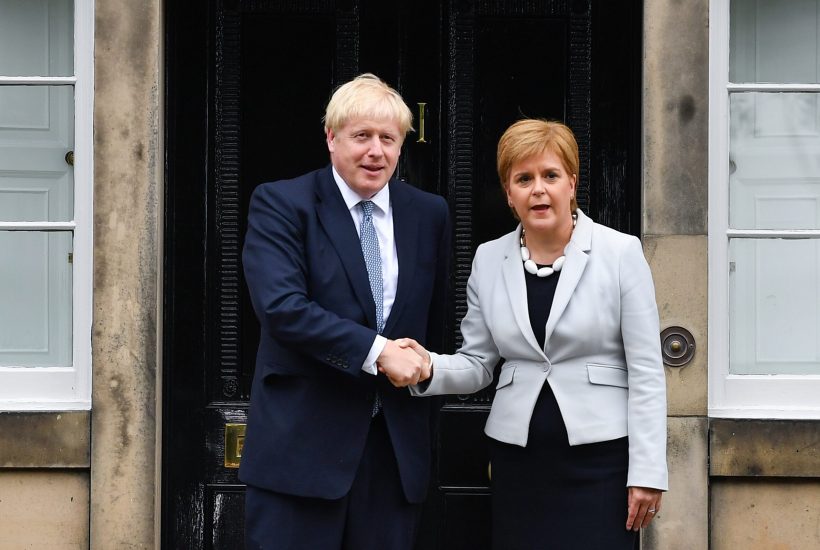
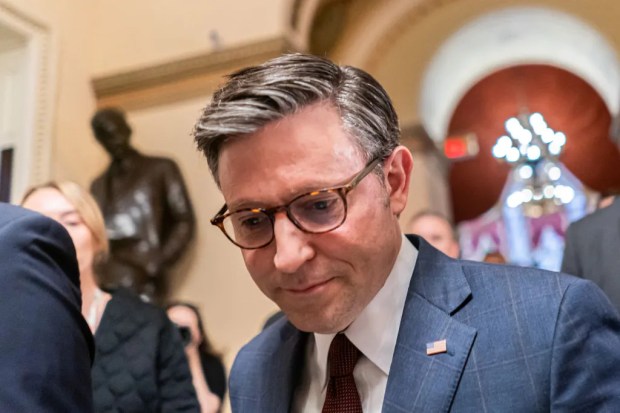
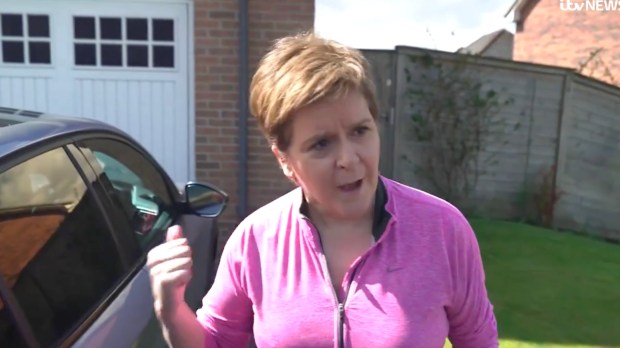
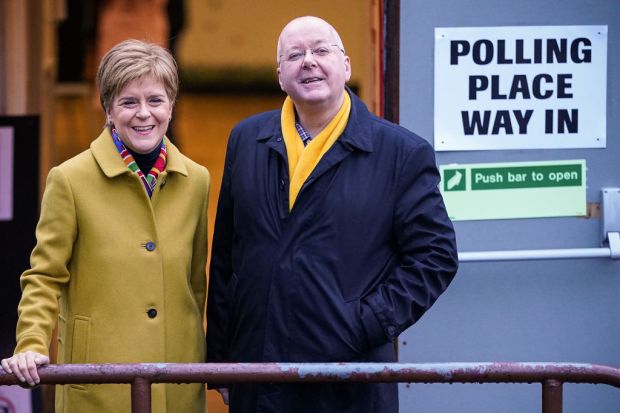

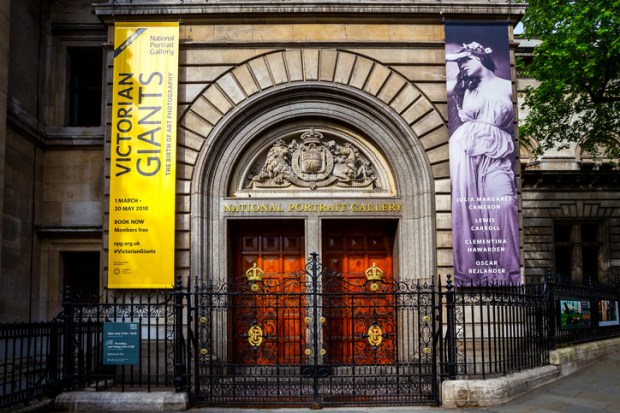
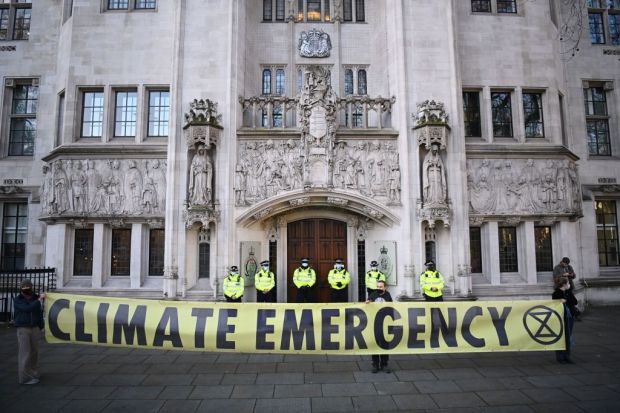












Comments
Don't miss out
Join the conversation with other Spectator Australia readers. Subscribe to leave a comment.
SUBSCRIBEAlready a subscriber? Log in